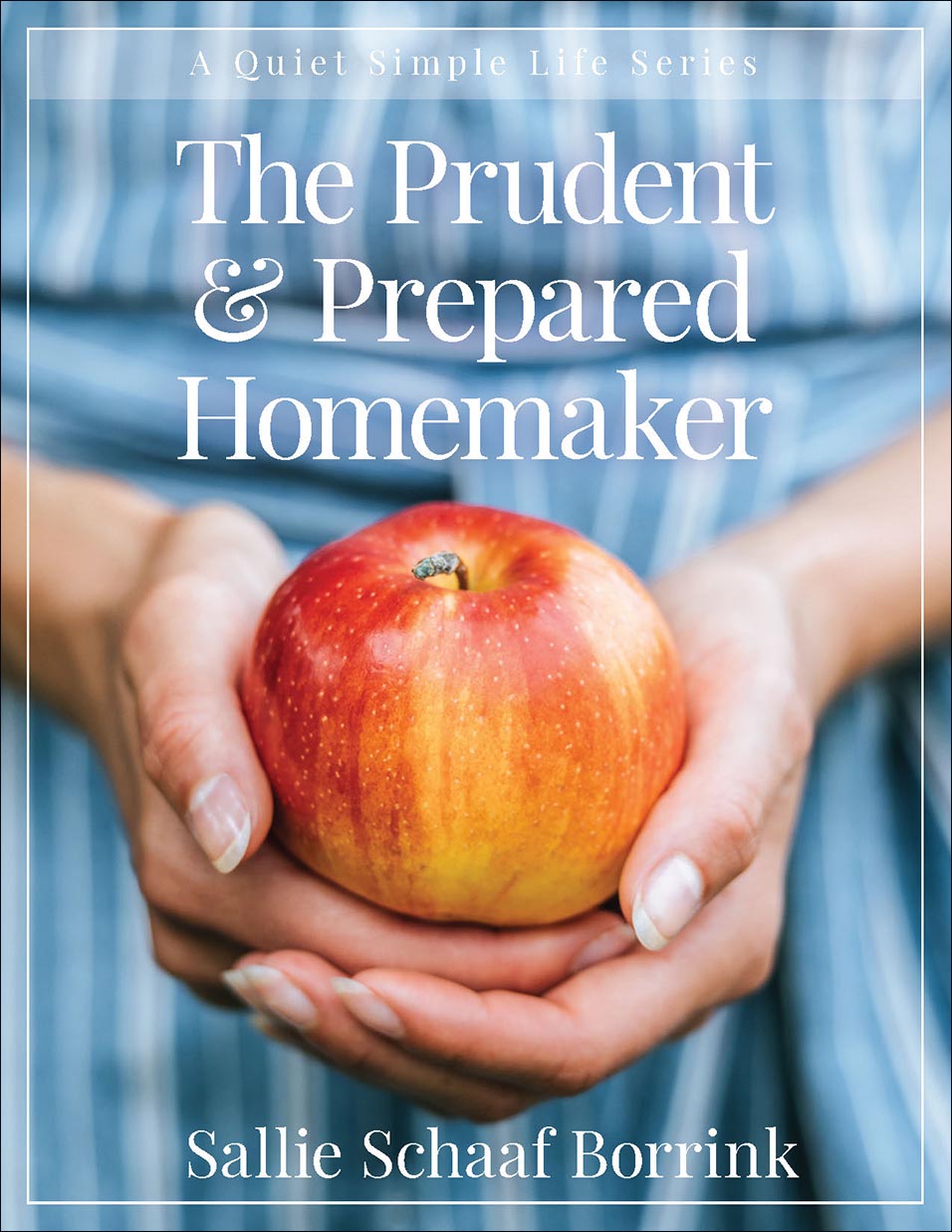How people deal with the unknown and their level of anxiety related to emergencies can be thought of as a continuum. At one end, you have people who need to be fully and thoroughly informed to feel comfortable with life around them. They read, discuss, and think a lot in order to fully understand as many aspects of a situation as they can to the point it can become an obsession. At the other end of the spectrum are those who live in denial and act as though they can make things not real by not thinking about them. If they don’t think about it, it doesn’t exist. Then you have everyone in between.
It’s important to understand how you deal with the unknown, the threat of emergencies, and such. Why? Because falling on either extreme end isn’t healthy. It’s not healthy to constantly live hyper-focused on an unknown and scary future. It’s also not healthy to live in denial. In this post, I’m going to focus more on people who avoid thinking about these topics because it provokes anxiety in them.
I know this is a real thing and these are the women I am most concerned with reaching and helping. The woman who is hyper-focused on taking care of her family in difficult times may drive everyone nuts, but she’ll probably be ready for emergencies. The woman who doesn’t want to think about bad things happening won’t be ready to care for her family.
Don’t Make Decisions Driven By Fear
Before we dig into anxiety over the unknown, let’s think for a minute about fear.
- Fear can make people do crazy things.
- Fear can make people do stupid things.
- Fear can make people act irrationally.
It’s important to acknowledge the power that fear can have over us. Sometimes we know it is fear because we can identify the panicky feeling for what it is. Other times the fear driving us might be more subtle.

In either case, making decisions driven by fear is frequently a mistake. I won’t say always because sometimes the fear of a consequence can be a legitimate deterrent to an unwise choice. But when it comes to making decisions for our homes, fear probably isn’t a great guide.
So as you read and work through the various parts of the Prudent & Prepared Homemaker series, keep in mind that you don’t want to make irrational decisions driven by fear. We’re out to do just the opposite.
We’re here to look realistically at what our homes need, what is going on in the world around us, and how to make the best decisions in light of that. Unless you experience one of those overwhelming intuitive gut-checks that is telling you to do something or you clearly sense the Holy Spirit is telling you to do something that seems out of the ordinary, focus on creating a cohesive and practical plan you can execute day by day.
What Keeps You Awake at Night?
So what keeps you awake at night? What worries you? What would keep you awake at night if you heard about it?
One purpose of these posts is to help you find solutions to scenarios you’ve thought about. The other part is getting you outside of your comfort zone and helping you think of solutions to problems and scenarios that haven’t even crossed your mind.
We all have things that have the potential to keep us awake at night. In this series, we’re specifically looking at things related to caring for our families both on a day-to-day basis as well as in troubling times that we know can come, may come, and even will come.
I encourage you to take some time and write down exactly what you fear. Get it out of your head and on paper. Sometimes simply admitting we have a fear takes away some of the power it has over us.
You might also discover that some of the things you fear are vague and, when you dig a bit deeper, actually do have solutions. We’re going to be finding all kinds of solutions so knowing what you need will make it that much more helpful.
Dealing with Your Anxiety and Stress
Sometimes we have more than the basic concern about issues and events. Some people deal with profound anxiety. Some people are especially susceptible to stress. I think it’s important to address this as part of this series.
I’m not a mental health expert and I would not ever presume to diagnose someone. I have dealt with anxiety in the past including panic attacks brought on by medication. (If you have never experienced one, they are horrible.) I am probably more prone to stress than the average person due to an incredibly active mind. So while these topics do not leave me paralyzed or even impact my day to day life now, I have enough experience with them to be sympathetic toward those who deal with these very real issues on a daily basis.
So what should you do?
If you are prone to struggling with mental health issues, it’s very important you deal with them. If you have children who depend on you, they need a healthy parent both every day and in days of difficulties.
I’m here to tell you today that if you need someone to give you a gentle nudge or a kick in the rear to address this issue, I’m that person.
Go get help.
It’s so easy for mothers, in particular, to push our own needs down the to do list. To put off the doctor visit because money is tight and the kids need new shoes or whatever.
One of the ways you love your kids is by getting the help you need to be a healthy and whole person. Whether it means you need therapy, medication, or whatever – you need to prioritize this.
Please deal with it now. Don’t put it off.
Keep Calm and Carry On
We’ve all seen the red “Keep Calm and Carry On” posters and mugs and everything else. If you don’t know the story behind the original poster, the Wikipedia entry has more of the story.
Even though we’ve become accustomed to seeing it all over, there is a great deal of truth to it.
As the woman of the home, it is our privilege to keep calm and carry on. Our children look to us for cues regarding events they don’t understand. The way we react to circumstances around us that impact our home will indicate to our children how they should think about them.
We had this happen several months ago. Caroline came in to the office and asked me, “What is all this stuff about World War 3 starting?” I briefly and factually explained to her what had happened, why it had happened, and what we thought of it.
I then said, “We’re not worried about WW3 at all. Do we look worried?”
She acknowledged we did not.
I said, “It’s not going to keep me awake tonight when I go to bed. There is nothing to worry about.”
And that was that. She went back to what she was doing.
If I truly thought something was happening that she should be concerned about, I would tell her the truth. For example, a few months later I began following the coronavirus story in January. David and I discussed it with her so she was fully aware that something might be developing that would impact us. For my child, factual and straightforward has always been our policy and will continue to be. We should be there to diffuse the worry of our children, not contribute to it.
We’re the adults in the room and need to always be prepared to be the adult in the room.
In a later entry I’ll address more specifically talking about these topics with children. But for now I think we should take a cue from the Brits who went through difficulties (such as The Blitz) that we can’t quite fathom today.
As you work through how to be prudent and prepared in your home, I hope you will be inspired to prepare to Keep Calm and Carry On when the circumstances require it.
The Prudent & Prepared Homemaker
Read All of the Posts in the Series
3 Reasons To Become A Prudent & Prepared Homemaker
5 Reasons To Keep Written Pantry & Emergency Notes
4 Must-Know Tips About Stocking a Pantry
3 Tips for Building Your Pantry
7 Places To Find Extra Money For Stocking Your Pantry
3 Reasons Most “First Things to Buy” Prepper Lists Are Worthless
4 Tips to Deal with Emergency Anxiety
4 Facts About Preparing For Emergencies
3 Unusual Tips For Emergency Preparedness
11 Ways To Prepare Your Home For A Storm
4 Important Tips About Safe Water
4 Types of People Who Should Buy a 14-Day Emergency Food Supply Pack











 3 Reasons Most First Things to Buy Prepper Lists Are Worthless
3 Reasons Most First Things to Buy Prepper Lists Are Worthless
Leave a Reply